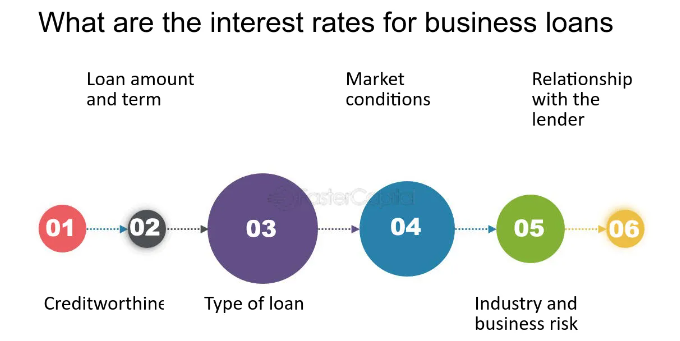In the ever-evolving landscape of business, organizations are continually searching for ways to optimize their operations and enhance customer relationships. Customer Relationship Management (CRM) systems have emerged as powerful tools that not only streamline processes but also act as catalysts for transformative business efficiency. This article explores how CRM solutions can revolutionize business practices, driving both operational excellence and enhanced customer experiences.

1. Understanding CRM and Its Importance
At its core, CRM refers to the strategies, practices, and technologies that organizations employ to manage interactions and relationships with customers and prospects. By leveraging CRM systems, businesses can consolidate customer data, track interactions, and analyze customer behavior, ultimately leading to more informed decision-making and improved relationships.
Centralized Customer Data: A CRM system acts as a central repository for customer information, making it easily accessible to various departments. This enables organizations to maintain comprehensive profiles of customers, including their preferences, purchase history, and previous interactions, which is crucial for personalized service.
Improved Customer Insights: CRM tools provide robust analytics capabilities that help organizations understand customer behavior and preferences. By analyzing this data, companies can tailor their marketing strategies and sales approaches to better meet customer needs.
2. Streamlining Business Processes
One of the primary benefits of implementing a CRM system is the ability to streamline various business processes. By automating routine tasks and facilitating better communication, organizations can operate more efficiently.
Automation of Repetitive Tasks: CRM systems automate many repetitive tasks, such as data entry, follow-up emails, and lead scoring. This not only reduces the workload for employees but also minimizes the risk of human error.
Efficient Lead Management: CRM software allows for better tracking and management of leads throughout the sales pipeline. By providing real-time updates and insights, sales teams can prioritize their efforts on high-potential leads, thereby increasing conversion rates.
Enhanced Collaboration: With centralized information, different departments can collaborate more effectively. Marketing, sales, and customer service teams can share insights and updates on customer interactions, ensuring a cohesive approach to customer management.
3. Elevating Customer Experience
CRM systems play a crucial role in enhancing the customer experience, which is essential for building long-term loyalty and satisfaction.
Personalized Interactions: By leveraging customer data, businesses can deliver personalized experiences that resonate with their audience. Whether through targeted marketing campaigns or tailored product recommendations, CRM enables organizations to engage customers in meaningful ways.
Timely Responses and Support: CRM systems allow for better tracking of customer inquiries and support requests. This means that customer service teams can respond more promptly and effectively, significantly improving customer satisfaction.
Feedback and Improvement: Many CRM solutions incorporate feedback mechanisms that enable organizations to gather insights from customers. This feedback can be invaluable for identifying areas for improvement and adapting services to better meet customer expectations.
Also Read: Streamlining Business Processes through CRM
4. Driving Data-Driven Decision Making
In today’s data-centric world, making informed decisions is crucial for success. CRM systems empower organizations with the data they need to make strategic choices.
Actionable Insights: CRM analytics provide organizations with valuable insights into customer behavior, sales performance, and marketing effectiveness. These insights enable leaders to identify trends and make informed decisions that drive growth.
Performance Tracking: Businesses can monitor key performance indicators (KPIs) related to sales, marketing, and customer service through their CRM systems. This allows for ongoing assessment and refinement of strategies, ensuring that organizations remain agile and responsive to market changes.
Predictive Analytics: Some advanced CRM solutions offer predictive analytics capabilities that forecast future customer behavior based on historical data. This can help organizations proactively address customer needs and optimize their offerings.
5. Enhancing Scalability and Flexibility
As businesses grow and evolve, their processes must adapt accordingly. CRM systems provide the scalability and flexibility needed to accommodate changing demands.
Customizable Solutions: Most CRM platforms offer customization options that allow organizations to tailor features and functionalities to their specific needs. This ensures that the CRM system aligns with the business’s unique processes and objectives.
Integration with Other Tools: Many CRM systems can integrate with other business applications, such as marketing automation, e-commerce platforms, and accounting software. This integration streamlines workflows and enhances overall efficiency.
Support for Remote Work: With the rise of remote work, many CRM solutions are cloud-based, enabling teams to access customer data and collaborate from anywhere. This flexibility is essential for modern business operations.
6. Fostering Continuous Improvement
Implementing a CRM system is just the beginning; organizations must continually evaluate and improve their processes to maximize the benefits of CRM.
User Training and Support: Ensuring that employees are adequately trained on the CRM system is crucial for maximizing its potential. Ongoing training and support help users become proficient and leverage the system effectively.
Feedback Loops: Regularly gathering feedback from users about the CRM system can provide valuable insights into its functionality and usability. This feedback can inform future enhancements and optimizations.
Adapting to Market Changes: The business landscape is constantly changing, and organizations must remain agile. By monitoring industry trends and adapting CRM strategies accordingly, businesses can maintain a competitive edge.
Conclusion
CRM systems serve as catalysts for transformative business efficiency by streamlining processes, enhancing customer experiences, and driving data-driven decision-making. By centralizing customer data, automating routine tasks, and fostering collaboration, organizations can operate more effectively and build stronger relationships with their customers.
As businesses continue to evolve, the implementation of a robust CRM system will be a crucial factor in achieving sustainable growth and success in today’s dynamic market landscape.
Sources:
- Microsoft Dynamics 365 – How CRM Software Can Streamline Your Business
- Forbes – Why CRM Solutions Are Crucial For Business Growth
- Zendesk – How CRM Can Improve Your Business Processes
- Pipedrive – How to Streamline Your Sales Processes with CRM
- Freshsales – Why You Should Invest in a CRM to Streamline Your Business Processes